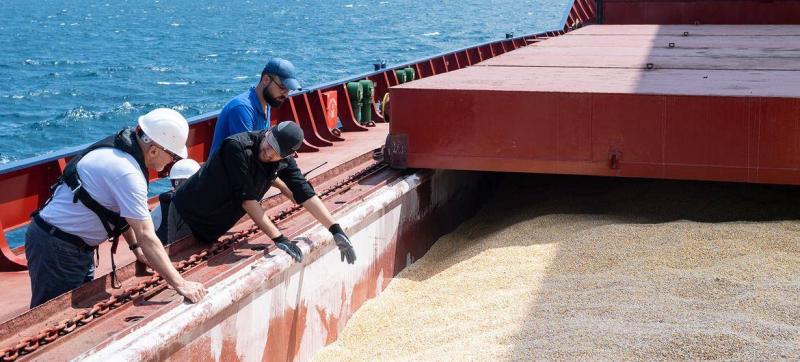Ukraine has managed to boost its grain exports in the Black Sea to levels not seen since before the Russian invasion, but the shipping crisis in the Red Sea poses a new challenge to its vital agricultural trade. Kyiv's success in replacing its shipping plan to substitute the United Nations-backed export agreement in the Black Sea has eased conditions for Ukrainian farmers and importing countries.
The rebound in exports helped stabilize the Ukrainian economy last year and contributed to a reduction in global food prices that had surged to record levels due to the Russian invasion in February 2022. In December, Kyiv shipped about 4.8 million tons of food, mostly grains, from its Black Sea ports, surpassing for the first time the quantities recorded under the previous UN-sponsored corridor. Moscow withdrew from that agreement last July, claiming it did not adhere to its commitments regarding the protection of its exports.
Before the Russian invasion, Ukraine was exporting about six million tons of food monthly via the Black Sea. Svetlana Malish, a leading agricultural analyst for the Black Sea region at the London Stock Exchange Group, stated, "The alternative export corridor through the Black Sea from Ukraine was definitely a positive signal for agricultural activity... (but) there are many concerns regarding the situation in the Red Sea."
Crossing the Red Sea is critically important for Ukraine, as a third of its exports pass through this sea to China. Alexander Karavitsiev, chief economist at the International Grains Council, noted that under the new Ukrainian export plan, Ukraine is also supplying grains to Pakistan for the first time since the Russian invasion. Analysts and traders indicated that grain ships are increasingly diverting away from the Suez Canal and Red Sea. Karavitsiev stated, "The situation in the Red Sea is likely to hinder long-distance shipments from Ukraine."




